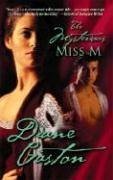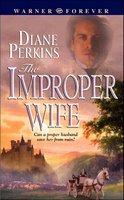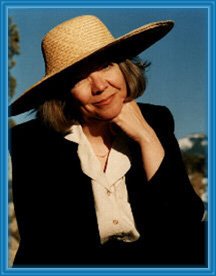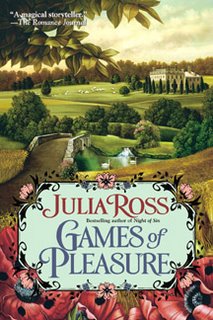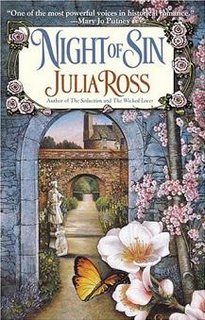 We are back with Julia Ross for Part 2 of her interview. Click here to read Part 1.
We are back with Julia Ross for Part 2 of her interview. Click here to read Part 1.
Q. Your writing style has been described as a “combination of lyricism and sensuality … on par with Jo Beverley’s” (Booklist). How do you achieve this effect?
I’m very flattered to be compared to Jo, because I’ve always loved her writing. If reviewers or readers see some similarities between us, though, it’s probably because we were both growing up in England at about the same time and were exposed to many of the same influences. My writing style is exactly what comes naturally. I care very much about language and polish every sentence until it sounds “right” — the rhythm and feeling and choice of words — plus I try to delve deeply into my characters’ hearts and minds, so I write in terms of what matters to them, not to me. In the end my approach is very intuitive, and though many of Jo’s fans love my books and vice versa, that’s not always the case, since each book is unique.
Q. The heroine of GAMES OF PLEASURE is a courtesan, definitely a risky heroine. Can you tell us more about how you came up with this character?
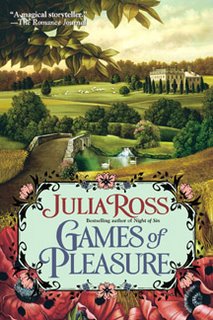 All of my historical heroines have tended to be a little — or a lot — unusual, I think. My very first (in ILLUSION) was an English lady who’d been trained as a concubine while captive in a harem in India, and returned to Regency England with a gold ring in her nostril. Frances was expert in the erotic techniques of the Kama Sutra, but — since not even a maharajah always sampled every concubine that he owned — she was also a virgin, and that’s what made her so interesting.
All of my historical heroines have tended to be a little — or a lot — unusual, I think. My very first (in ILLUSION) was an English lady who’d been trained as a concubine while captive in a harem in India, and returned to Regency England with a gold ring in her nostril. Frances was expert in the erotic techniques of the Kama Sutra, but — since not even a maharajah always sampled every concubine that he owned — she was also a virgin, and that’s what made her so interesting.
And Miracle, sought-after courtesan to the Regency aristocracy? By the time I finished NIGHT OF SIN (with my brave Dissenter heroine, Anne Marsh) I knew that Jack’s brother, Lord Ryderbourne, had to have his own book. As a duke’s heir, Ryder was sexy and powerful and an obvious hero, yet he was also weighed down by duty and strangely innocent. Since romance thrives on tension, the heroine needed to present him with a challenge — and a professional courtesan was about as far from Ryder’s expectations as was possible. Though I must admit that when Ryder first plunged his horse into the ocean to save Miracle from drowning, I had no idea what she’d been doing for a living, or why she was unconscious and half-naked in a boat.
However, I already knew who Ryder was from NIGHT OF SIN. My hero always really drives the story, and if he’s complex and tortured, so much the better! Though Ryder isn’t as obviously dark and troubled as his brother Jack, it’s only because he’s less self-aware. So once I knew her real past, I was fascinated by how Miracle would react to a man like Ryder, and how he’d react to her, especially once he knew the truth.
Yet in spite of her pragmatic attitude to men and sex, I honestly didn’t think of Miracle in terms of risk. She’s honorable and brave and worthy of a hero’s heart, and she’s never been simply promiscuous. After all, there are plenty of rakes in romance who abandon their mistresses at the start of the story when they meet the heroine. It would reflect a very cruel double standard if those women were always villains, or doomed to unhappiness, wouldn’t it? So why not have a brilliant, sexually knowledgeable heroine like Miracle seduce a gorgeous guy like Ryder, and then overcome all the odds to eventually find happiness with him?
Q. What do you see as some of the greatest creative risks you’ve taken in your career? Has there ever been anything an editor asked you to remove or tone down? Anything readers had problems with?
To judge a character or plot-element as a “risk” implies that the author has accepted a certain set of expectations that she’s consciously breaking, and that’s simply not the way that I write. Though it might have been “safer” to write simpler or less sophisticated stories, all of my editors so far have encouraged me to go wherever the story demands, whether it’s “different” or not, and no editor has ever asked me to tone down a thing. On the contrary, my editors repeatedly tell me that my unique voice and approach is what they love most about my books. There’s great freedom in that, but it can also be a little intimidating at times!
As for readers having problems, several years ago I lost some of my early Regency readers, who didn’t like the explicit sensuality of my long historicals and let me know all about it. Yet only the kindest of readers seem to contact me these days. My fans sometimes point out little errors that might have crept in, but usually they’re incredibly generous with their praise, which always touches me to the heart.
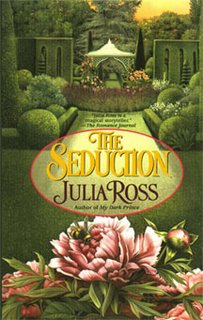 Beginning every new book is incredibly tough for me, and it’s often at some moment of great self-doubt that I’ll receive a wonderful e-mail from a new fan. For example, a professional romance reviewer in Germany just e-mailed to tell me that she’d become so caught up in THE SEDUCTION that she was in danger of falling behind on her job. She’d already ordered copies of all of my titles still in print and was searching out my backlist, as well. I feel very humbled to get an e-mail like that, but it also helps to inspire me to keep writing.
Beginning every new book is incredibly tough for me, and it’s often at some moment of great self-doubt that I’ll receive a wonderful e-mail from a new fan. For example, a professional romance reviewer in Germany just e-mailed to tell me that she’d become so caught up in THE SEDUCTION that she was in danger of falling behind on her job. She’d already ordered copies of all of my titles still in print and was searching out my backlist, as well. I feel very humbled to get an e-mail like that, but it also helps to inspire me to keep writing.
Meanwhile, I’m absolutely thrilled that my fans have enabled Berkley to put the words “bestselling author” on my covers, and I owe them a huge debt of thanks. THANK YOU, READERS!! On the other hand, my stories are definitely not for everyone, so I don’t troll the Internet looking for negative comments from readers who prefer a different style. One of the greatest attributes of romance is that there’s enough variety to suit all of us, so no author needs to please every reader, and it’s far better that way.
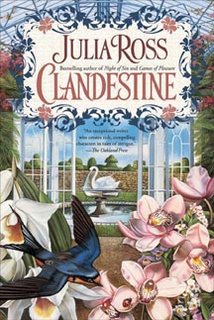 Q. We hear you just completed the manuscript for your next book. Congratulations! Can you tell us more about it?
Q. We hear you just completed the manuscript for your next book. Congratulations! Can you tell us more about it?
CLANDESTINE will be released in Berkley trade paperback in November with some very sensuous orchids and a lovely, iridescent barn swallow on the cover. It’s the third book in the Wyldshay trilogy, and opens when Guy Devoran — Jack and Ryder’s glamorous cousin — is accosted in a London bookstore by a redheaded schoolteacher from Bath. I had no idea when I began this story that Guy was hiding dark secrets throughout NIGHT OF SIN and GAMES OF PLEASURE — secrets he simply must keep from Sarah Callaway, even when he agrees to help her find her missing cousin. The cover art and a tiny teaser are already up on my web site at www.juliaross.net and I’ll be adding more between now and November. So please stay tuned!
Q. What are you planning to work on next?
I don’t plan very far ahead, and I always take off a little time between books to refill the well, so at the moment I really have no clue what the next story will be, or even when or where it might take place. I’m going to England again very soon — I go every year to explore new locations and ideas — so I trust that another “burning idea” will have grabbed me by the time I get back! Meanwhile, I hope I can find the time to put some photos up on my web site of places in Britain that helped to inspire scenes in previous books — like bluebell woods and coast paths — though that probably won’t happen for several more weeks. Which leads me once again to thank my readers for always being so patient with me. Including my necessary “dream time,” it takes me a solid year to write a book, so there’s not a lot of spare time left over. Thanks again, Risky Regencies!

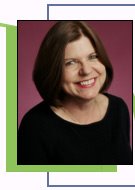
 Diane Perkins
Diane Perkins